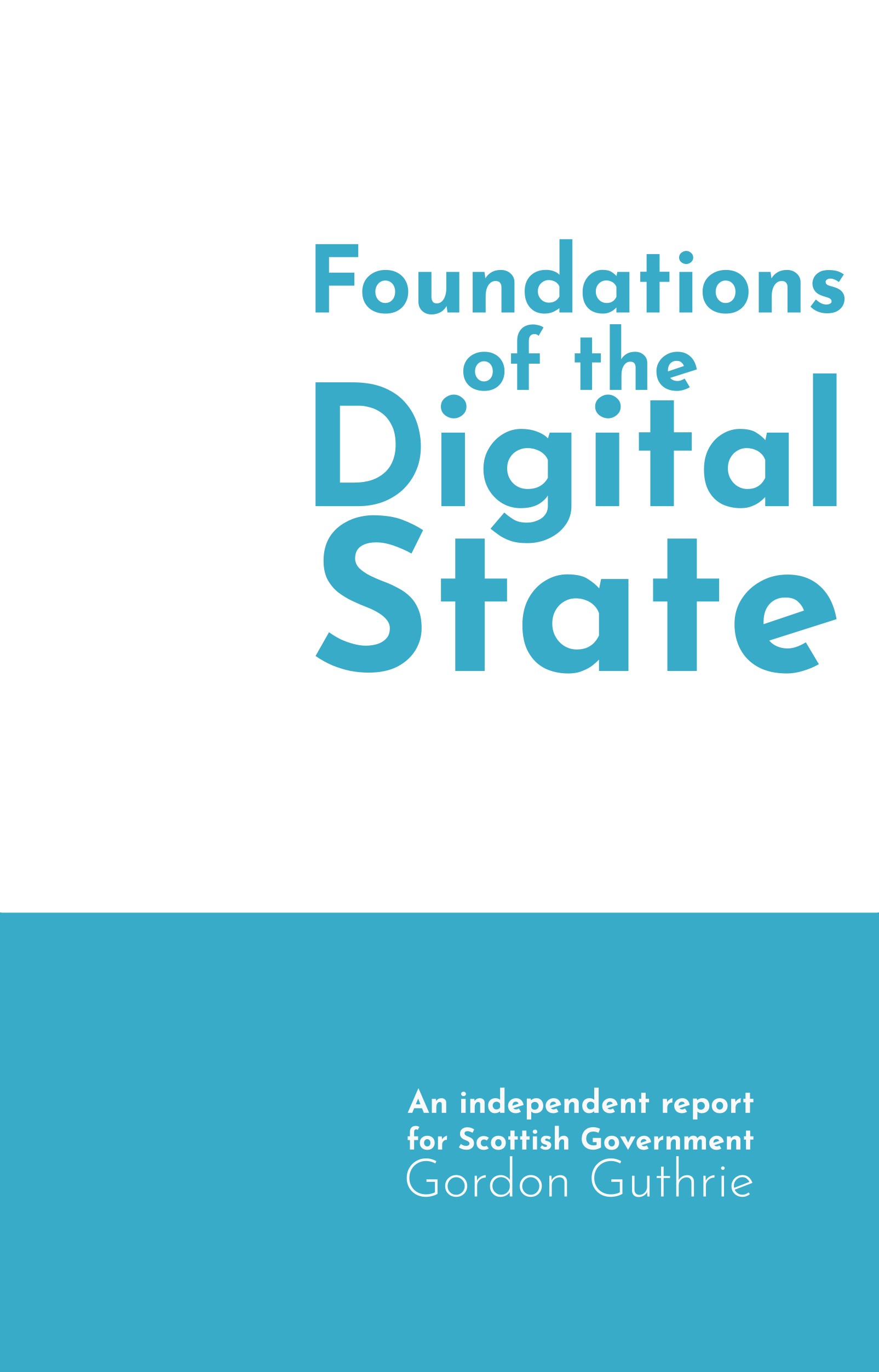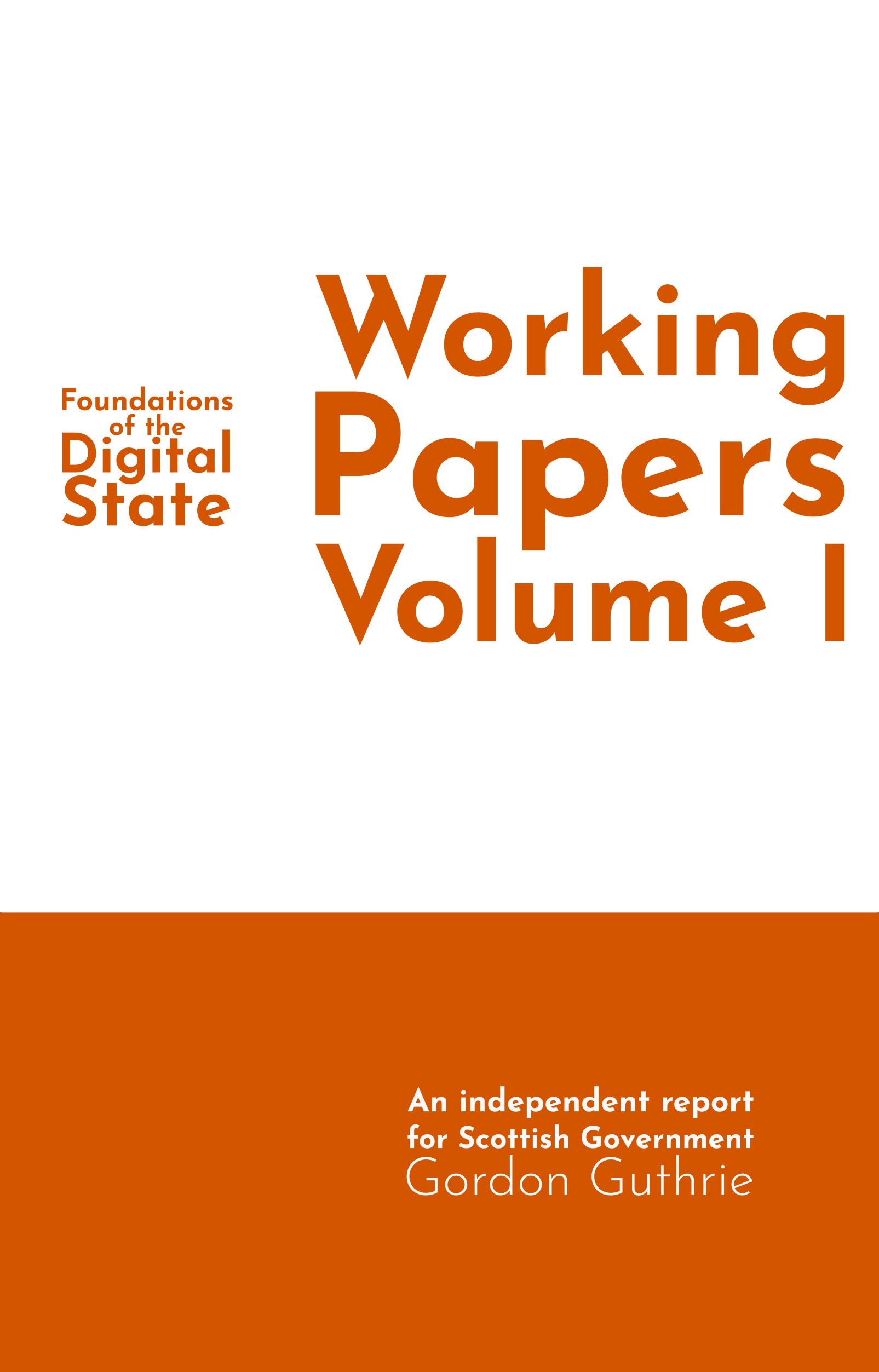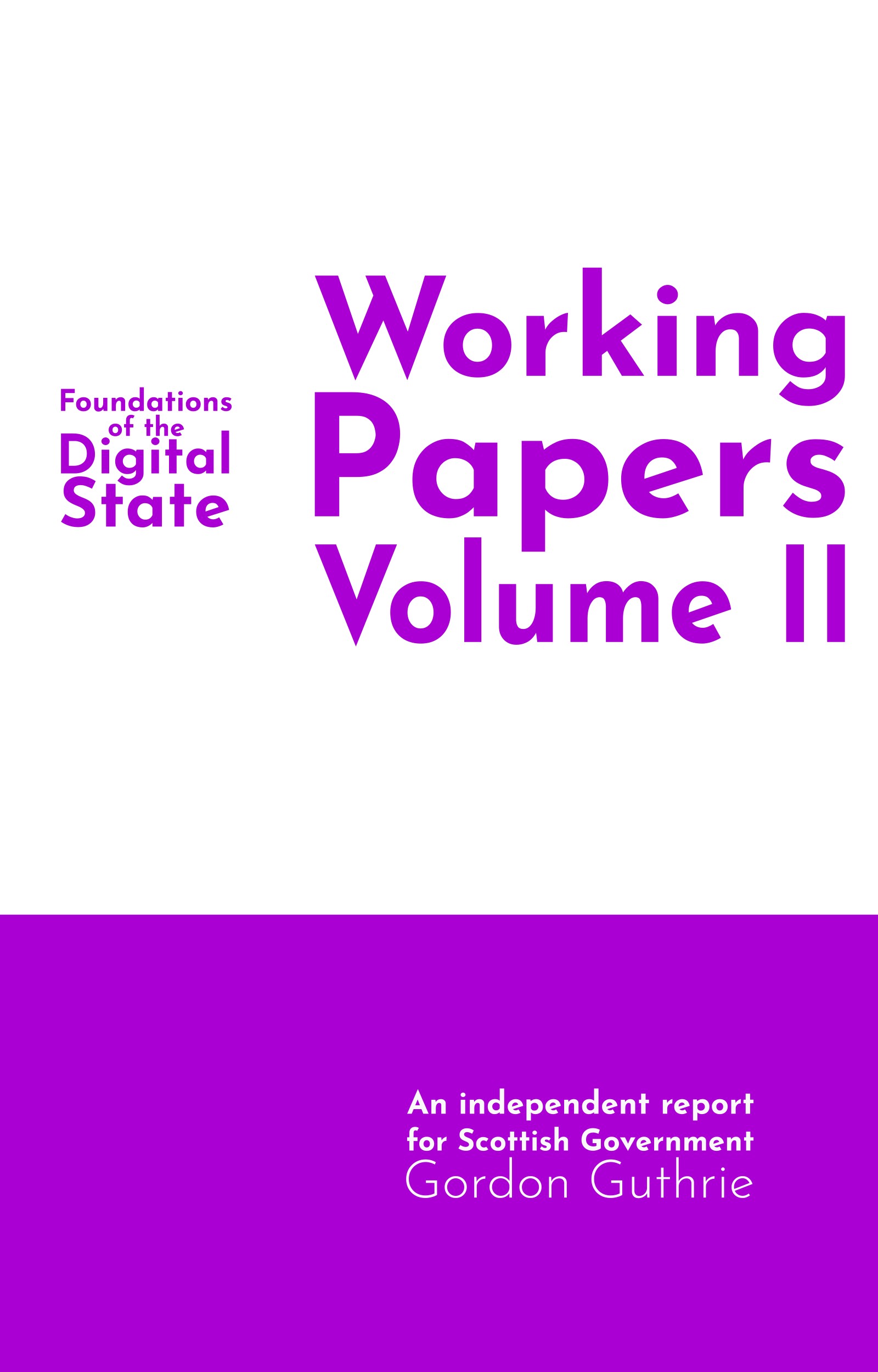Foundations of the Digital State
A law is passed and a computer system is born.



Since the turn of the millenium every state in the world has been transitioning from an analogue to a digital form.
The digital state is but a child. Government lags behind society in the adoption of digital, but the changes in la longue durée will be profound and substantial.
This report is the first major organisational and constitutional study of the digital state. It covers the entire political cycle: from manifestos and think-tanks, through the creation of legislative and administrative programmes, the format of legislation, the workings of parliaments and on to the usual technical and design delivery processes and in-service systems.
Based on extensive research and practitioner-interviews, The Foundations of the Digital State spans multiple disciplines. Major digital programmes involve dozens of pieces of legislation, complex funding programmes and organisational evolution.
It makes a number of recommendations as to how to complete the transition of Scotland from an analogue to a digital state.
The Foundations of the Digital State is an independent report for the Scottish Government. It was researched and written during a Research Fellowship under the First Minister's Digital Fellowship Programme.
The report was launched on Monday 18th November - and you can watch it.
The report and 2 volumes of working papers are available as:
- a PDF download from Scottish Government (and this site)
- an ebook
- a paperback
What people are saying
Gordon Guthrie has produced an ambitious report with recommendations that are eminently achievable. The challenge for those who would implement it will be to think like cathedral builders: this is about upgrading for the long term. In an age of political volatility and continuous domestic and global shifts, the need for our governments and public institutions to embrace the power of technology to do good for our citizens couldn't be clearer. This report outlines a series of strategic and sensible aims that, done properly, can deliver the type of modernisation of the Scottish state that is long overdue. I hope our politicians and those in Scotland's governing ecosystem will read it favourably.
Can you really design an institutional framework for digital governance that is fit for the next 100 years? I think you can if you do what Gordon Guthrie has done here, which is to admit what we do know, can know, but also what we cannot possibly foretell. And notably, we cannot tell the future! It follows that if you require a practical proof of policy principle before you move to implementation you are likely to save time, money and the sanity of system users across the board. If you design your digital systems to be both socially embedded and open to flexible, iterative improvement and innovation from the start then these systems are likely to prove far more functionally resilient than any framework sold to you as good for all times and places. We live in a complex, imaginative and democratic society – a society that is always evolving into something else – and this is a framework that actively embraces that complexity.
Gordon Guthrie's proposal takes a knowledgeable and deeply thoughtful approach to digital government transformation. Rather than focusing solely on technology, it addresses how government designs and delivers services at a fundamental level. Gordon's practical blueprint combines institutional reform with clear implementation steps, offering valuable insights for public sector modernization. I urge Scottish Govt to consider this proposal very seriously.
The Foundations of the Digital State is a timely, practical guide to the radical modernisation of government. Drawing on his political and technical expertise, Gordon proposes a set of institutional structures to deliver a more effective modern, digital state from policy inception onwards. A must read for all politicians, officials, and technologists who want to know how to deliver a 'digital transformation' of government with real impact.
The Foundations of the Digital State presents a wide-ranging and formidable analysis of the future tech-enabled administrative state. Guthrie's research is informed by a depth of both political and technical expertise, and his proposals are keenly sensitive to the technological realities that democracies must grapple with. This is an essential read for those interested in how technology, policy, and the democratic process can (and should) fit together -- a topic that's fundamentally important to each and every one of us.
With his extensive experience in business, innovation and politics Gordon is uniquely able to bring together this vision for the future of government reform. Exceptionally well researched and clearly mapped out steps to delivery this report shows how the best practices of technological innovation and business reporting can improve our political processes. Incremental deliveries, continuous improvement and increased openness all play into this well thought out recommendation that will benefit our economy and civic society.
Gordon Guthrie's report Foundations of The Digital State stands out as one of the most comprehensive analyses on public sector transformation I have read. His approach extends beyond the traditional boundaries of the civil service, diving into the political roots of policy and emphasizing the impact of party manifestos as the foundation of our policy landscape. I am particularly impressed by his compelling 'gearbox' metaphor for government, capturing the often-overlooked reality that different components of government operate at varying speeds. This insightful imagery underscores the importance of seamless transitions to prevent conflict and inefficiency, providing a fresh and realistic lens through which to view sustainable change. Gordon's report is riddled with this kind of vivid imagery, making it a fun read filled with memorable concepts that you'll find yourself referencing to colleagues weeks and months later.
About the author
Gordon Guthrie was both active in the campaign to win the parliament in the 1990s and had the honour to be a candidate for it in the historic 1999 election. He has had a long career in the UK’s top internet firms as well as major Silicon Valley ones.